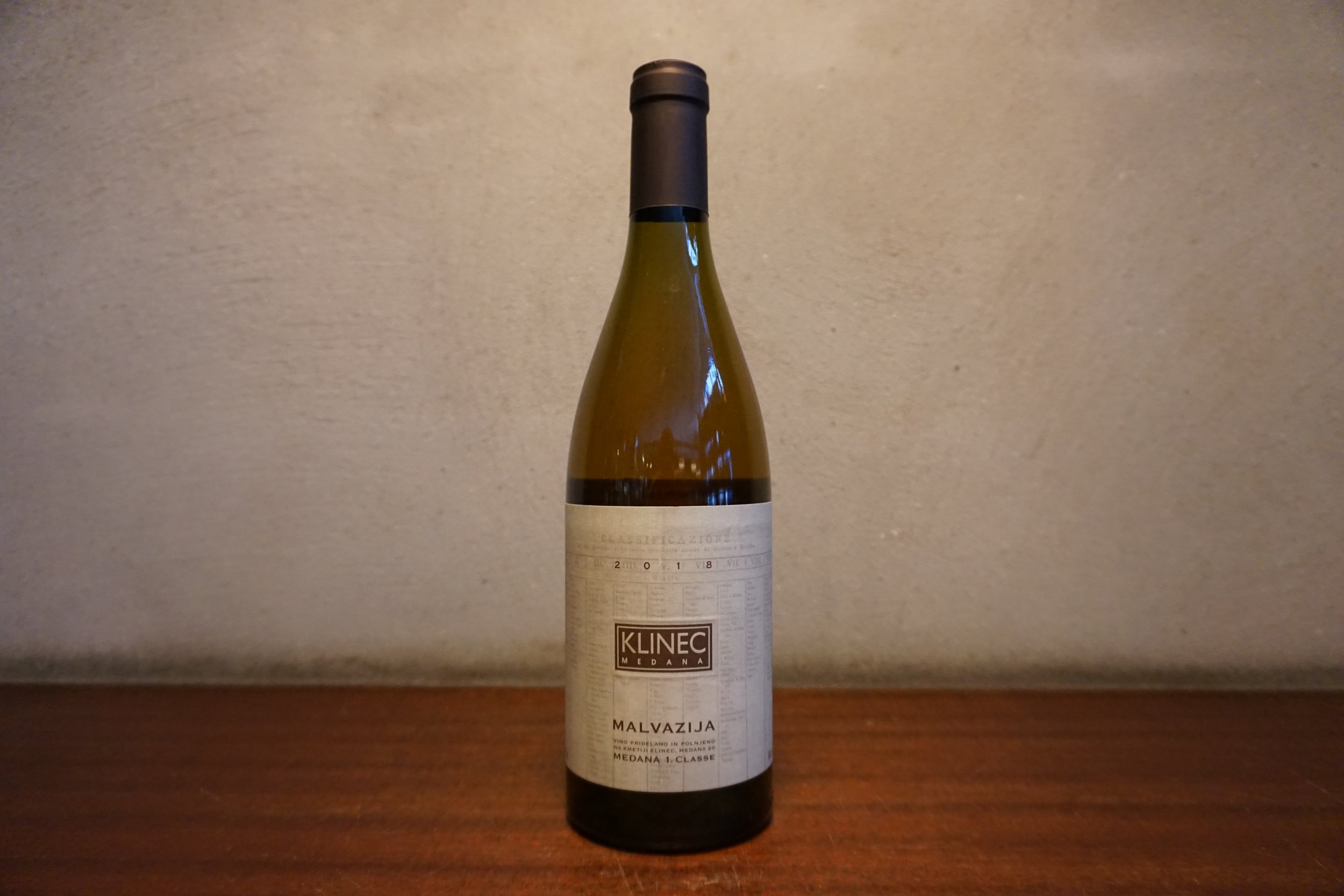Klinec
Medana - Brda - Slovenia
We first met Aleks Klinec in 2010 at a very strange tasting just outside Taranto in the arch of Italy’s boot. The event was in a roadside hotel far from town and having taken one of our customary walks along a busy dual carriageway we arrived in a function room full of some very exciting wines. Apart from us, a few local dignitaries and a couple of buyers from Japan we were the only people there to taste.
Bizarre as this was, it afforded us the rare opportunity to take our time and so we got to know many winemakers that have become friends and with whom we still work today. Alek’s wines really stood out and after spending a jolly evening with him in the hotel bar, it wasn’t long before we were visiting him and his wife Simona on their farm in Medana in Slovenia’s Brda-Collio region.
Here, Aleks and Simona farm 6 hectares of vines alongside olive trees, sheep and pigs. They use the latter to make hams and salami which they serve in their family restaurant underneath their house; I highly recommend a visit. Alongside delicious food you can drink Alek’s incredible wines made from Rebula, Tokai Friuliano, Pinot Grigio, Malvazija and Verduz for the whites and Merlot and Cabernets Sauvignon and Franc for the reds. The family have been growing grapes here since 1918 on steep terraces of alternating marl and sandstone. The terraced hills of the Brda-Collio lead down from the Julian Alps to the Gorizia plains and the Adriatic, forming a sort of amphitheatre facing the gulf of Trieste. The combination of soil and climate make Medana a particularly special place to grow grapes and Alek’s farming practice allows him to take full advantage of all of these benefits. For us, the Klinec wines are defined by a mineral, almost salty backbone which Aleks says only started to be apparent when the vines had become accustomed to the Biodynamic farming he now practices – the roots went deeper and are able to ingest the minerals and nutrients the now healthy, living soil contains.
This part of the Italian/Slovenian border has become associated with the resurgence of skin macerated white wines, what we now call orange wine. Though Aleks uses this technique the wines are not dominated by it their mineral core means that despite the extended skin maceration the wines all feel fresh and vibrant even with ageing. Maceration and fermentation happens in the cellar below the restaurant in cement tanks. The length of maceration depends on the grape with Rebula seeing the longest time on the skins, around 10 days or more depending on the vintage. Aleks thinks that Rebula’s natural characteristics are more suited to longer maceration whilst the more delicately aromatic Malvazija and Tokai Friuliano deserve a more gentle approach and see only 4 days on the skins.
After fermentation the wine travels to the cellar on the level below when it spends at least 36 months on the lees in acacia barrels for the whites and a mix of cherry, mulberry and oak for the reds.
The years of work in the vineyard are paying off and it really seems that every year the wines get better and better.




